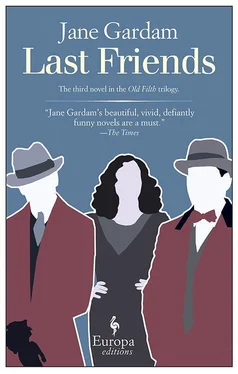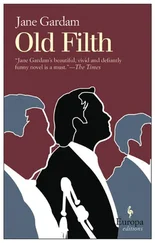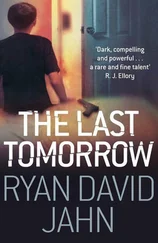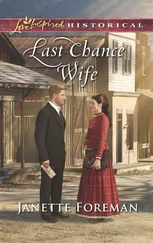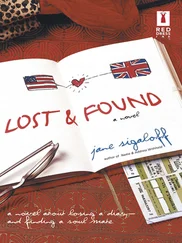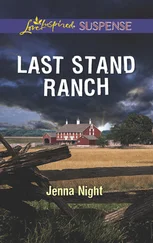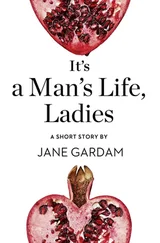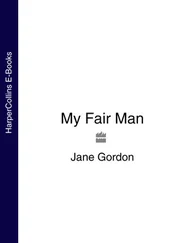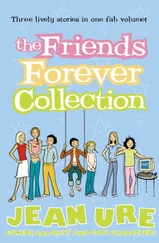Away down past the churchyard at the foot of the steep stepped path sped old Chloe on her bicycle bearing on the handlebars a jam sponge and in her other hand the ancient church key. She called a greeting and waved.
‘Just wondered if I’d remembered to unlock. So glad I had,’ and pressed on.
In the village shop, she said, ‘There’s something going on in the church. I think it’s a pageant.’
Dulcie had been put to bed by Susan. Fiscal-Smith, with his overnight case beside him on the terrace, was awaiting transport.
‘You might call me a taxi.’
Susan said, ‘There are no taxis. I’ll drive you to the station. Do you want to say goodbye to Dulcie?’
‘Oh, no thank you.’
‘She will not be pleased.’
‘Whatever I say or do makes not the least difference to her. I make no difference to anyone.’
‘Oh, I’m sure—.’
‘All the years we have all known each other, do you know, Susan, I’ve never actually been invited anywhere. And I was present when Betty saw Veneering for the first time. Party. Filth was like Hyperion. Betty looked like the captain of the school hockey team. Gorgeous Betjeman girl. Stalwart but not joyful.’
‘You don’t have to tell me this—.’
‘As she came in to the party she saw Veneering across the room. Hell-raising, blond-yellow hair falling over his face, already half drunk (and with a case starting against Eddie next morning) and I saw him get hold of a pillar. White and gold. Fluted. His face became very still and serious. Yes. I saw the beginning of it. The disgraceful love affair.’
‘We have five minutes to get to the station. You may catch it but you know, you’re very welcome—.’
‘No I am not.’
* * *
In the train he stood inside the doors on the high step and looked down on Susan. ‘No. I am not welcome. But thank you for the lift. Edward and Betty never invited me to stay either. At that lunch at Dulcie’s I had to walk in from Salisbury. Seven miles.’
‘Oh, Fiscal-Smith,’ she said, ‘until yesterday you were one of the last friends. Her last and best.’
‘I wonder if she remembers,’ he said. ‘That I was Edward’s best man?’
The doors clashed together, clapping their hands a couple of times. There were some fizzing and knocking sounds and then a long sigh. Then the train clattered off, and Susan stood staring at its disappearing rump, wondering why the ridiculous man cared so much about these people who were dead and hadn’t liked him anyway. He’d said in the car that Veneering was the best of them. That Veneering could have invited him down here. That he’d known him from boyhood.
‘But couldn’t you have invited them to you anyway? To stay with you up in the North?’
‘Not possible,’ he had said. ‘Anyway, I am the only one who knows Veneering’s secrets.’
‘Did you never have a wife, Fiscal-Smith?’
‘Certainly not,’ he had said.
God, thought Susan, these old fruits are boring.
Anna, the young wife of the poet from the house that had been Veneering’s, had been at the village shop that morning at the same time as Chloe, buying bread and milk for breakfast, and she had heard the words ‘pageant’ and ‘church’.
She was interested in the church, and the unlikely Saint Ague, and had been allowed to do something about the vestry. She loved robes and the clergy. She came from a vicarage family and wasn’t usual. She was the reason why the brass plates in memory of Betty Feathers shone so bright. What a homely name! Some old villager! Then someone else corrected her and told her about wonderful dead Betty, very distinguished woman, and she thought, Oh Lord, another old dear. And it was Anna now, the family woman who put the Cope in clean sacking and starched the choir boys’ surplices so that they looked like preening swans. Sadly there were only three choir boys now and seldom visible. Or audible.
Soon, the old guard predicted this woman (Anna) would be in Charge of Altar Frontals, then Communion Silver and Candle-sticks (already rumoured to be in her attic). Not, of course, Flowers. Only Betty Feathers had dared take Flowers unasked. Betty Feathers had not had much to do with churches except in Hong Kong but she was unbeatable on flowers. During her mature years at St. Ague with her perfect husband Sir Edward (Filth) Feathers, vicars of the parish had been grateful for such a conventional and pleasant woman and nothing churchy about her. You would never guess she might take over. And here most exceptionally, for most of St. Ague was fashionably atheist now, was another. This Anna. ‘Labourers,’ said the village elders, ‘do still seem to keep the vineyard going even late in the day. And for no pay.’ Anna had been a god-send at the last harvest festival and for the first time in years there had been more than tins of baked beans round the lectern.
There had been a bit of a fuss about Anna surrounding the Easter pulpit with bramble bushes. Not only had she taken them up by the roots (she put them back down her drive-way, where they thrived) but they had damaged several small children who had come with chocolate eggs and rabbits.
Mothers — one or two — enquired if she was interested in the cleaning rota and she said, ‘I don’t want to push in but if you like we’ve got a power hose and we could cover the Saxon frieze of The Wounds of St. Ague in bubble-wrap.’ ‘Or Elastoplast,’ said her husband, the poet, the family man.
In the end they let Anna fix up only the vestry. Just for the present.
‘I do not care for “fixing up”,’ said one of the ex-flower committee, now confined, like her twin sister, to a wheel chair. They lived with a Carer up the lane and went to church on separate weeks, as the Carer could take only one at a time.
The Vicar tearing past to the next of his string of churches each Sunday, gave thanks for Anna (whoever she was), prayed for new hassocks and fungicides and matches.
‘It will take a hundred grand to deal with the vestry. Half a million to save the church,’ said Anna. ‘We’ll have a go with the power hose.’
St. Ague’s became Anna’s secret passion, her plan for life to supersede (or kill) Chloe. Her heart had gone cold with dread when Chloe, that morning, had said the word ‘pageant’.
* * *
‘Oh yes,’ Chloe had said. ‘Scarlet and gold. Robes. Pushing out through that little narrow door. Very queer. Something double-headed. Like black magic. We’re wondering if it was art? Your husband seemed to be in charge, Anna. Is he a film director?’
‘In charge !’ she cried. ‘I left him in bed.’
‘Well he was in running shorts. And he was either on his mobile or directing, like in a play. His arms going up and down.’
Anna said that she had better get home, but instead launched off her car with the breakfast in it towards Privilege House which seemed to be empty except for Herman who was standing in the kitchen eating fish-fingers on his own. He was staring out at the now heavily falling rain. ‘Can I come round to you, Anna? To play? I mean music. We’re going back to America tomorrow.’
‘Where’s your grandmother?’
Anna turned to ice when she saw the gold and crimson vestments gleaming around the Aga, a mitre contracting on one hot plate, and Dulcie’s yesterday’s funeral hat on the other.
‘They put her back in bed I think.’
‘And you didn’t even go up to see ,’ said Anna. ‘You are rubbish, Herman.’
* * *
Dulcie was sitting up in bed, her hair fallen into extraordinary Napoleonic cork-screws, her eyes immense, and downing a double Famous Grouse. ‘He’s gone,’ she said. ‘He didn’t say goodbye.’ She wept.
Читать дальше
